https://www.theatlantic.com/magazine/archive/2017/10/is-trump-ending-the-american-era/537888/
- Search The Atlantic
Quick Links
How Trump Is Ending the American Era
For all the visible damage the president has done to the nation’s global standing, things are much worse below the surface.
Mike McQuade
Like
The Atlantic? Subscribe to
The Atlantic Daily, our free weekday email newsletter.
Donald Trump was right. He inherited a mess. In January 2017, American foreign policy was, if not in crisis, in big trouble. Strong forces were putting stress on the old global political order: the rise of China to a power with more than half the productive capacity of the United States (and defense spending to match); the partial recovery of a resentful Russia under a skilled and thuggish autocrat; the discrediting of Western elites by the financial crash of 2008, followed by roiling populist waves, of which Trump himself was part; a turbulent Middle East; economic dislocations worldwide.
From Our October 2017 Issue

Subscribe to
The Atlantic and support 160 years of independent journalism
Subscribe
An American leadership that had partly discredited itself over the past generation compounded these problems. The Bush administration’s war against jihadist Islam had been undermined by reports of mistreatment and torture; its Afghan campaign had been inconclusive; its invasion of Iraq had been deeply compromised by what turned out to be a false premise and three years of initial mismanagement.
The Obama administration’s policy of retrenchment (described by a White House official as “leading from behind”) made matters worse. The United States was generally passive as a war that caused some half a million deaths raged in Syria. The ripples of the conflict reached far into Europe, as some 5 million Syrians fled the country. A red line about the use of chemical weapons turned pale pink and vanished, as Iran and Russia expanded their presence and influence in Syria ever more brazenly. A debilitating freeze in defense spending, meanwhile, left two-thirds of U.S. Army maneuver brigades unready to fight and Air Force pilots unready to fly in combat.
These circumstances would have caused severe headaches for a competent and sophisticated successor. Instead, the United States got a president who had unnervingly promised a wall on the southern border (paid for by Mexico), the dismantlement of long-standing trade deals with both competitors and partners, a closer relationship with Vladimir Putin, and a ban on Muslims coming into the United States.
Some of these and Trump’s other wild pronouncements were quietly walked back or put on hold after his inauguration; one defense of Trump is that his deeds are less alarming than his words. But diplomacy is about words, and many of Trump’s words are profoundly toxic.
Foreign leaders have begun to reshape alliances, bypassing and diminishing the United States.
Trump seems incapable of restraining himself from insulting foreign leaders. His slogan “America First” harks back to the isolationists of 1940, and foreign leaders know it. He can read speeches written for him by others, as he did in Warsaw on July 6, but he cannot himself articulate a worldview that goes beyond a teenager’s bluster. He lays out his resentments, insecurities, and obsessions on Twitter for all to see, opening up a gold mine to foreign governments seeking to understand and manipulate the American president.
Foreign governments have adapted. They flatter Trump outrageously. Their emissaries stay at his hotels and offer the Trump Organization abundant concessions (39 trademarks approved by China alone since Trump took office, including one for an escort service). They take him to military parades; they talk tough-guy-to-tough-guy; they show him the kind of deference that only someone without a center can crave. And so he flip-flops: Paris was no longer “so, so out of control, so dangerous” once he’d had dinner in the Eiffel Tower; Xi Jinping, during an April visit to Mar-a-Lago, went from being the leader of a parasitic country intent on ripping off American workers to being “a gentleman” who “wants to do the right thing.” (By July, Trump was back to bashing China, for doing “NOTHING” to help us.)
In short, foreign leaders may consider Trump alarming, but they do not consider him serious. They may think they can use him, but they know they cannot rely on him. They look at his plans to slash the State Department’s ranks and its budget—the latter by about 30 percent—and draw conclusions about his interest in traditional diplomacy. And so, already, they have begun to reshape alliances and reconfigure the networks that make up the global economy, bypassing the United States and diminishing its standing. In January, at the World Economic Forum, in Davos, Switzerland, Xi made a case for Chinese global leadership that was startlingly well received by the rich and powerful officials, businesspeople, and experts in attendance. In March, Canada formally joined a Chinese-led regional development bank that the Obama administration had opposed as an instrument of broadened Chinese influence; Australia, the United Kingdom, Germany, and France were among the founding members. In July, Japan and Europe agreed on a free-trade deal as an alternative to the Trans-Pacific Partnership, which Trump had unceremoniously discarded.
In almost every region of the world, the administration has already left a mark, by blunder, inattention, miscomprehension, or willfulness. Trump’s first official visit abroad began in Saudi Arabia—a bizarre choice, when compared with established democratic allies—where he and his senior advisers offered unreserved praise for a kingdom that has close relations with the United States but has also been the heartland of Islamist fanaticism since well before 9/11. The president full-throatedly took its side in a dispute with Qatar, apparently ignorant of the vast American air base in the latter country. He has seemed unaware that he is feeding an inchoate but violent conflict between the Gulf kingdoms and a countervailing coalition of Iran, Russia, Syria, Hezbollah, and even Turkey—which now plans to deploy as many as 3,000 troops to Qatar, at its first base in the Arab world since the collapse of the Ottoman empire at the end of World War I.
The administration obsesses about defeating the Islamic State in Iraq and Syria, and yet intends to sharply reduce the kinds of advice and support that are needed to rebuild the areas devastated by war in those same countries—support that might help prevent a future recurrence of Islamist fanaticism. The president, entranced by the chimera of an Israeli–Palestinian peace, has put his inexperienced and overburdened son-in-law, Jared Kushner, in charge of a process headed nowhere. Either ignorant or contemptuous of the deep-seated maladies that have long afflicted the Arab world, Trump embraces authoritarians like Egypt’s President Abdel Fattah al-Sisi (“Love your shoes”) and seems to dismiss the larger problems of governance posed by the crises within Middle Eastern societies as internal issues irrelevant to the United States. A freedom agenda, in either its original Bush or subsequent Obama form, is dead.
Big foreign-policy failures are like heart attacks: They follow years of hidden malady.
In Europe, the administration has picked a fight with the Continent’s most important democratic state, Germany (“Bad, very bad”). Trump is sufficiently despised in Great Britain, America’s most enduring ally, that he will reportedly defer a trip there until his press improves (it will not). Paralyzed by scandal and internal division, the administration has no coherent Russia policy: no plan for getting Moscow back out of the Middle East; no counter to Russian political subversion in Europe or the United States; no response to reports of new Russian meddling in Afghanistan. Rather than pushing back when the Russians announced in July that 755 U.S. government employees would be expelled, Trump expressed his thanks for saving taxpayers 755 salaries.
America’s new circumstances in Asia were not much better as this story went to press, in mid-August—and with the world on edge, they could quickly get much worse. Though North Korea is on the verge of developing a nuclear-tipped intercontinental ballistic missile, Trump neglected to rally American allies to confront the problem during his two major trips abroad. His aides proclaimed that they had discovered the solution, Chinese intervention—apparently unaware of the repeated failure of that gambit in the Clinton, Bush, and Obama administrations. Trump did, however, take a break from a golfing holiday to threaten North Korea with “fire and fury” in the event that Kim Jong Un failed to pipe down. To accommodate a president fixated on economic deals, an anxious Japan has pledged investments that would result in American jobs. A prickly Australia, whose prime minister Trump snarled at during their first courtesy phone call, has edged further from its traditional alliance with America—an alliance that has been the cornerstone of its security since World War II. (In a gesture that may seem trivial but signifies much, in July Australia’s foreign minister, Julie Bishop, slapped at Trump for his ogling of the French president’s wife, suggesting that his admiring looks had gone unreciprocated.)
On issues that are truly global in scope, Trump has abdicated leadership and the moral high ground. The United States has managed to isolate itself on the topic of climate change, by the tone of its pronouncements no less than by its precipitous exit from the Paris Agreement. As for human rights, the president has taken only cursory notice of the two arrests of the Russian dissident Alexei Navalny or the death of the Chinese Nobel Prize winner and prisoner of conscience Liu Xiaobo. Trump did not object after Turkish President Recep Tayyip Erdoğan’s security detail beat American protesters on American soil, in Washington, D.C. In April, he reportedly told Filipino President Rodrigo Duterte, who has used death squads to deal with offenders of local narcotics laws, that he was doing an “unbelievable job on the drug problem.” Trump’s secretary of state, Rex Tillerson, made it clear in his first substantive speech to State Department employees that American values are now of at best secondary importance to “American interests,” presumably economic, in the conduct of foreign policy.
All this well before a year was out.
The Compounding Risk of Crisis
Matters will not improve. Trump will not learn, will not moderate, will not settle into normal patterns of behavior. And for all the rot that is visible in America’s standing and ability to influence global affairs, more is spreading beneath the surface. Even when Trump’s foreign policy looks shakily mediocre rather than downright crazy, it is afflicting the U.S. with a condition not unlike untreated high blood pressure. Enormous foreign-policy failures are like heart attacks: unexpected and dangerous discontinuities following years of neglect and hidden malady. The vertigo and throbbing pulse one feels today augur something much worse tomorrow.
To a degree rarely appreciated outside Washington, it is virtually impossible to conduct an effective foreign policy without political appointees at the assistant-secretary rank who share a president’s conceptions and will implement his agenda. As of mid-August, the administration had yet to even nominate a new undersecretary of state for political affairs; assistant secretaries for Near Eastern, East Asian and Pacific, or Western Hemisphere Affairs; or ambassadors to Germany, India, or Saudi Arabia. At lower levels, the State Department is being actively thinned out—2,300 jobs are slated for elimination—and is losing experience by the week as disaffected professionals quietly leave.
High-level diplomatic contact with allies and adversaries alike has withered. Meanwhile, for fear of contradicting him, Trump’s underlings avoid saying too much publicly. As a result, the administration’s foreign policy will continue to be as opaque externally as it is confused internally.
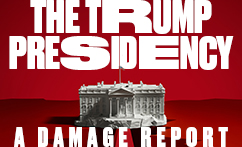 An assessment of how the administration has changed America
An assessment of how the administration has changed America
Read more
One consequence will be a corresponding confusion on the part of foreign powers about the administration’s goals, commitments, and red lines—and the likely misinterpretation of stray signals. Even well-run administrations can fail to communicate their intentions clearly, with dire consequences. On July 25, 1990, the American ambassador to Iraq, April Glaspie, met with Saddam Hussein. Glaspie assured Saddam of President George H. W. Bush’s friendship and, although the administration was concerned about a possible Iraqi attack on Kuwait, blandly remarked that “we have no opinion on the Arab–Arab conflicts, like your border disagreement with Kuwait.” A week later, Saddam’s troops invaded Kuwait, and he was surprised when Bush did not take it well. Again, this happened in a competent administration. One shudders to think what the Trump equivalent might be with regard to, say, Chinese aggression in the South China Sea.
The first Bush administration recovered from the disaster of the Iraqi invasion of Kuwait because it was an effective and cohesive team of highly experienced professionals—Brent Scowcroft, James Baker, Dick Cheney—led by a prudent and disciplined president. They built a coalition, reassured and mobilized allies, placated neutrals, and planned and executed a war. They disagreed with one another in open and productive ways. They shrewdly used the career civil servants and able political appointees who served them energetically and well. Even so, the war’s ragged end and unexpected consequences are with us still.
Saddam’s invasion of Kuwait, North Korea’s invasion of the South in 1950, the Soviet invasion of Hungary, the Cuban missile crisis, the 1967 and 1973 Middle East wars, the collapse of communism, 9/11, the 2011 Arab Spring—all were surprises. So too were lesser episodes like the 2007 discovery of a North Korean nuclear reactor in Syria. Surprises are unavoidably what international politics is all about; what matters is how well an administration copes with them. Trump was lucky to avoid an external crisis in his first seven months. That luck will run out.
Mike McQuade
Add to this fractured foundation the erratic behavior of the president himself, who will be less and less likely to accede to (or even hear) contrary advice as he passes more time in the Oval Office. Septuagenarian tycoons do not change fundamental qualities of their personalities: They are who they are. Nor is someone who has spent a career in charge of a small, family-run corporation without shareholders likely to pay much attention to external views. These arguments have been well ventilated. But what many people have not weighed adequately is the effect of the White House itself, the trappings and the aura, on those who inhabit it. After an initial period of awe, presidents become more confident that they know what they’re doing. Particularly for someone whose ego knows few bounds, it can be a dangerously intoxicating place.
The longer someone is in high office and becomes accustomed to supreme power, the less opposition and disagreement he will encounter and the less disagreement he is likely to heed. This may explain Obama’s Syria failure throughout his second term. This process is already well advanced within Trump’s White House, as evidenced by the bizarre and deeply worrying spectacle orchestrated by the president on June 12, in which all members of his Cabinet, with the honorable exception of Defense Secretary James Mattis, offered up competitively obsequious compliments to the boss while on national television. As old advisers and officials fall by the wayside—exhausted, disgraced, or both—the new ones will be more likely to accommodate a man they have known chiefly as “Mr. President” and whose favor has required self-abasement.
Consider this contrast: In July 2005, I published in
The Washington Post a searing critique of the Bush administration’s conduct of the Iraq War. The besieged defense secretary, Donald Rumsfeld, did not fire me from the Defense Policy Board, a senior advisory committee to the Department of Defense, on which I served. Within months I was advising the National Security Council staff, and eventually Secretary Condoleezza Rice asked me to serve in one of the most senior positions in the Department of State without a murmur of disapproval from the White House. This reflected less my value to the administration than the large-spiritedness of President George W. Bush and those who worked for him, and their awareness that expressing criticism or dissent was an act of patriotism, not personal betrayal.
Trump lacks that spirit, and his advisers—one way or another—will find themselves sapped of it as well. Mattis and Tillerson have, by all accounts, raged at a White House obsessed with loyalty, which fired a junior staffer for unflattering retweets more than a year old and had trouble attracting first-tier or independent-minded experts to begin with. At some point these advisers will either give up in frustration or simply be replaced by more-pliable individuals.
Trump unrestrained is of course a frightening prospect. His instincts are not reliable—if they were, he and his campaign would have kept their distance from Russian operatives. A man who has presided over failed casinos, a collapsed airline, and a sham university is not someone who knows when to step back from the brink. His domestic political circumstances, already bad, seem likely to deteriorate further, which will only make him more angry, and perhaps more apt to take risks. In a fit of temper or in the grip of spectacular misjudgment—possibly influenced by what he’s just seen on TV—he could stumble into or launch an uncontrollable war.
In one of the worst scenarios, Trump, as a result of his alternating overtures to and belligerence toward China, might bring about a conflict with Xi Jinping, who is consolidating his own power in a way not seen since the days of Mao Zedong. Military conflict between rising and preeminent global powers is hardly anomalous, after all, and the Chinese are no longer in the mood to accept American hegemony. In 1990, when George H. W. Bush confronted Saddam, an isolated dictator, a paralyzed Russia and weak China were powerless to interfere. He had at his disposal the American military at the peak of its post–Cold War strength, and a ready set of allies. The United States has grown used to wars with limited risk against minor and isolated rivals. A conflict with China would be something altogether different.
Trump is, and is likely to be to the end, volatile, truculent, and impulsive. When he does face a crisis, whether or not it is of his own making, he will discover just how weak his hand is, because no one—friends or enemies, the American public or foreign leaders—will take anything that he promises or threatens at face value. At that point we may find another Donald Trump emerging: the Trump who paid $25 million to the victims of Trump University, who rages at
The New York Times and then truckles to its reporters. Like most bullies, he can be stared down. But when he folds, American foreign policy will fold with him.
The Damage That Cannot Be Undone
This dangerous and dispiriting chapter in American history will end, in eight years or four—or perhaps in two or even one, if Trump is impeached or removed under the Twenty-Fifth Amendment. But what will follow? Will the United States recover within a few years, as it did from the disgrace of Richard Nixon’s resignation and the fecklessness of Jimmy Carter during the Iranian hostage crisis? Alas, that is unlikely. Even barring cataclysmic events, we will be living with the consequences of Trump’s tenure as chief executive and commander in chief for decades. Damage will continue to appear long after he departs the scene.
Americans, after trying every other alternative, can always be counted on to do the right thing, Winston Churchill supposedly said. But who will count on that now, after the victory of a man like Trump? Other countries interpret Trump’s election as America’s repudiation of its role as guarantor of world order. Canadian Foreign Minister Chrystia Freeland put it bluntly in a speech in June: “The fact that our friend and ally has come to question the very worth of its mantle of global leadership puts into sharper focus the need for the rest of us to set our own clear and sovereign course.”
Indeed, that is what is happening. Trump is not entirely a historical fluke, and it is reasonable to see his foreign policy as reflecting some Americans’ attitudes toward the outside world. Our politicians and our foreign-policy establishment—the former consumed by domestic matters, the latter largely by technocratic concerns—have lost the ability to make the case to the country for prudent American management of an international system whose relative peace for 70 years owes so much to Washington’s leadership. Americans who oppose Trump may conclude (also reasonably) that the country’s internal problems, including the fundamentals of its civic culture, demand their attention. They too may turn inward, not least because they have lost confidence in the strength of political institutions and the competence of the political class.
But there is also a more structural development that will make the recovery of America’s global status difficult: Trump is accelerating the decomposition of the Republican foreign-policy and national-security establishment that began in the 2016 campaign. Two public letters signed by some 150 of its members during the spring and summer of last year denounced Trump not merely for bad judgment but also for bad character. (I co-organized one letter and assisted with the other.) Few who signed the letters cared to recant after the election. The administration clearly wanted nothing to do with any of them anyway, although it would have been wise to display magnanimity and recruit some of them. Magnanimity is not, however, part of the Trump playbook.
These would have been some of the leading candidates to serve in a normal Republican administration. Finding other candidates has been difficult, but eventually the jobs will be filled. If the administration lasts four years, and even more so if it lasts eight, those who fill them will be the GOP’s successor generation, much of the anti-Trump group being too old, or too compromised within a Republican Party that has dutifully rallied around its leader, to hold sway. Because the Trump administration prizes personal loyalty above all other qualities—most emphatically including competence, creativity, integrity, and even, in some measure, patriotism—this is a serious problem.
Establishments exist for a reason, and, within limits, they are good things. Despite what populists think, foreign policy is not, in fact, safely handed over to teams of ideologues or adventurous amateurs. Dean Acheson, Harry Truman’s secretary of state, who helped stabilize the post–World War II world, was not a corporate head who suddenly took an interest in what goes on abroad; neither was George Shultz, who, as Ronald Reagan’s secretary of state, helped orchestrate the final stage of the Cold War. Behind each of those men were hundreds of experts and practitioners who had thought hard about the world, and had experience steering the external relations of the Great Republic.
An elite consensus that spans both parties means a government that does not shift radically from administration to administration in its commitments to allies or to human rights, in its opposition to enemies, or in its support for international institutions; that has a sense of direction and purpose that transcends partisan politics; that can develop the political appointees our system uniquely depends on to staff the upper levels of government. As long as that elite is honest, able, open to new talent and to considered course alterations, and tolerant of dissent, it can provide consistency and stability.
Veterans of Trump’s administration will include some patriots who knowingly took a reputational hit to save the country from calamity—plus a large collection of mediocrities, cynics, and trimmers willing to equivocate about American values and interests, and indeed about their own beliefs. Many of them even now can say, as the old Soviet joke had it, “I have my personal opinions, but I assure you that I don’t agree with them.” Or, as one person explained his decision to me as he began working for the administration, “It’s my last shot at a big job.”
Related Stories
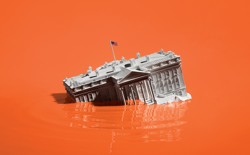
Most of these veterans, knowing what their former friends and colleagues think of their decision, will be angrily self-justifying. Many of the “Never Trumpers” who have held back from working for an odious man will be disdainful. That is human nature. But the upshot will be a Republican establishment riven, like the conservative intellectual class more broadly, by antagonisms all the more bitter because they rest as much on personal feelings of injury or vindication as on principled beliefs. “Everything I’ve worked for for two decades is being destroyed,” a senior Republican experienced in foreign policy told Susan B. Glasser of
Politico in March. One should not expect from such individuals ready forgiveness of the destroyers. All the while, the Democratic Party will be going through its own turmoil as its foreign-policy experts, who had aligned overwhelmingly with Hillary Clinton, come under pressure from members of the party’s left wing, some of whose views on foreign affairs are not that far from Trump’s.
America’s astonishing resilience may rescue it once again, particularly if Trump does not finish his first term. But an equally likely scenario is that Trump will leave key government institutions weakened or corrupted, America’s foreign-policy establishment sharply divided, and America’s position in the world stunted. An America lacking confidence, coupled with the rise of undemocratic powers, populist movements on the right and left, and failing states, is the kind of world few Americans remember. It would be like the world of the late 1920s or early 1930s: disorderly and unstable, but with much worse to follow.
There are many reasons to be appalled by President Trump, including his disregard for constitutional norms and decent behavior. But watching this unlikeliest of presidents strut on the treacherous stage of international politics is different from following the daily domestic chaos that is the Trump administration. Hearing him bully and brag, boast and bluster, threaten and lie, one feels a kind of dizziness, a sensation that underneath the throbbing pulse of routine scandal lies the potential for much worse. The kind of sensation, in fact, that accompanies dangerously high blood pressure, just before a sudden, excruciating pain.
About the Author
The Trump Presidency: A Damage Report
An assessment of how the administration has changed America
Most Popular on The Atlantic
More Popular Stories
- About
- Contact
- Podcasts
- Subscription
- Follow
TheAtlantic.com Copyright (c) 2018 by The Atlantic Monthly Group. All Rights Reserved.
The Atlantic
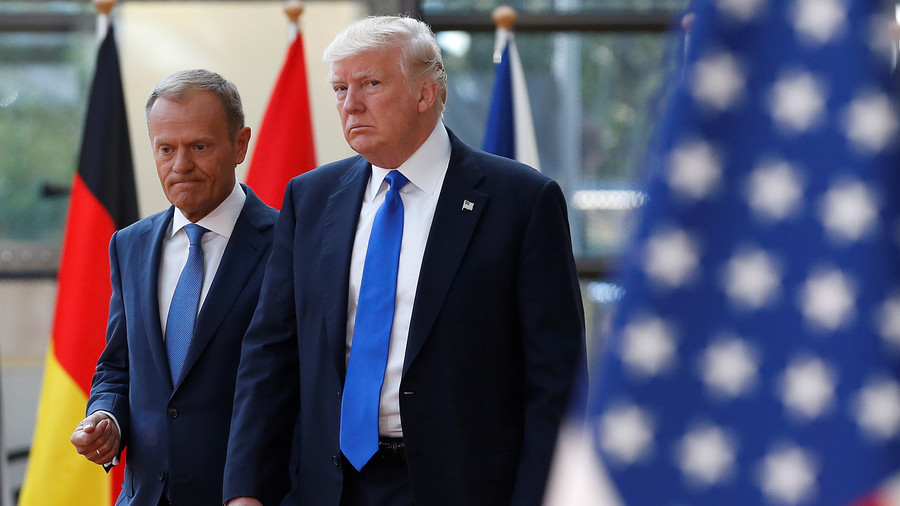
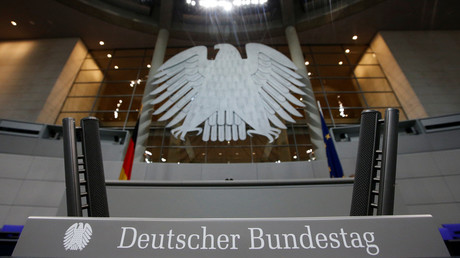 ‘Germany is not a banana republic’: Top brass from ruling coalition hits out at US envoy
‘Germany is not a banana republic’: Top brass from ruling coalition hits out at US envoy 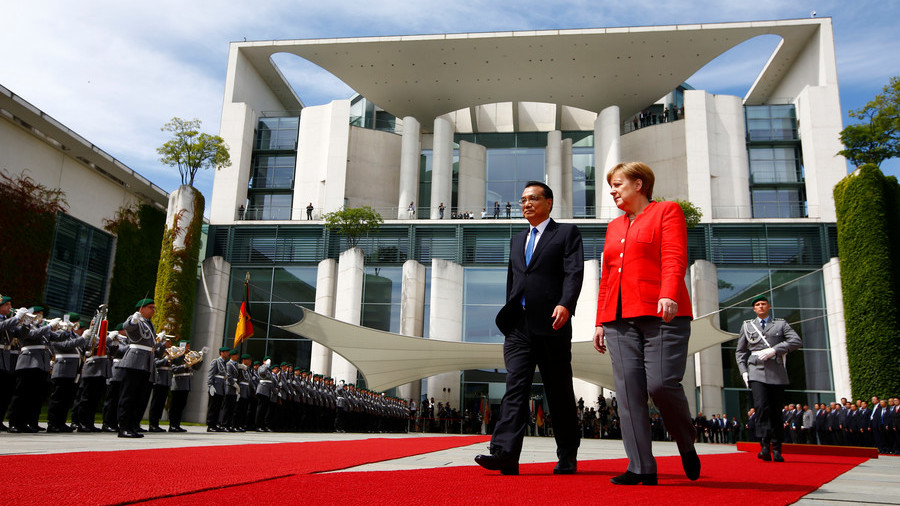

 ‘Germany is not a banana republic’: Top brass from ruling coalition hits out at US envoy
‘Germany is not a banana republic’: Top brass from ruling coalition hits out at US envoy 











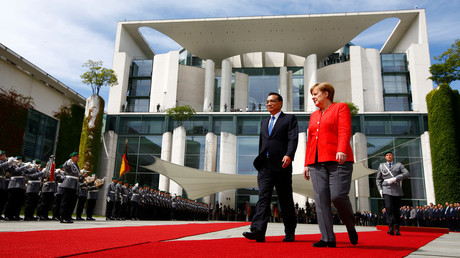 China and Germany sign €20 billion in trade deals in response to US tariff hikes
China and Germany sign €20 billion in trade deals in response to US tariff hikes 
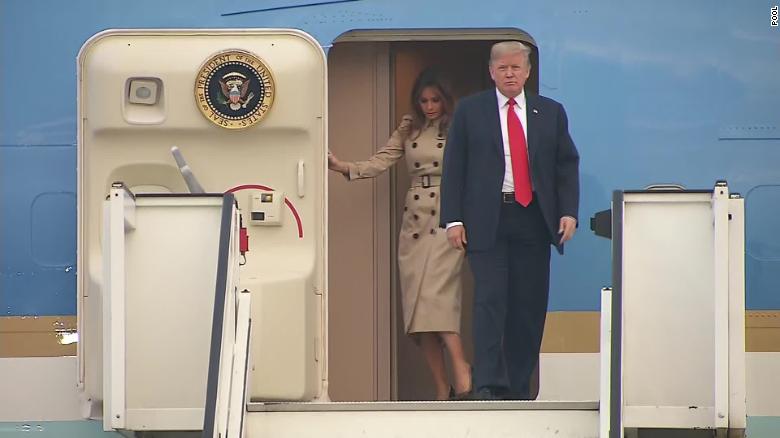
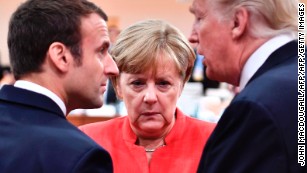
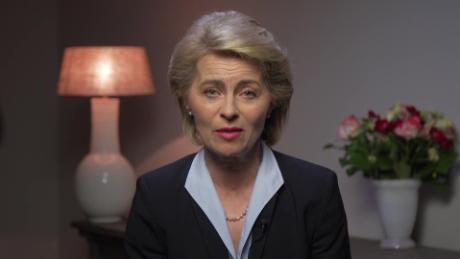
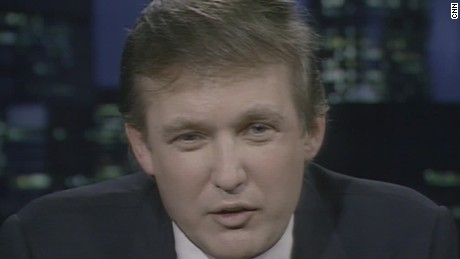
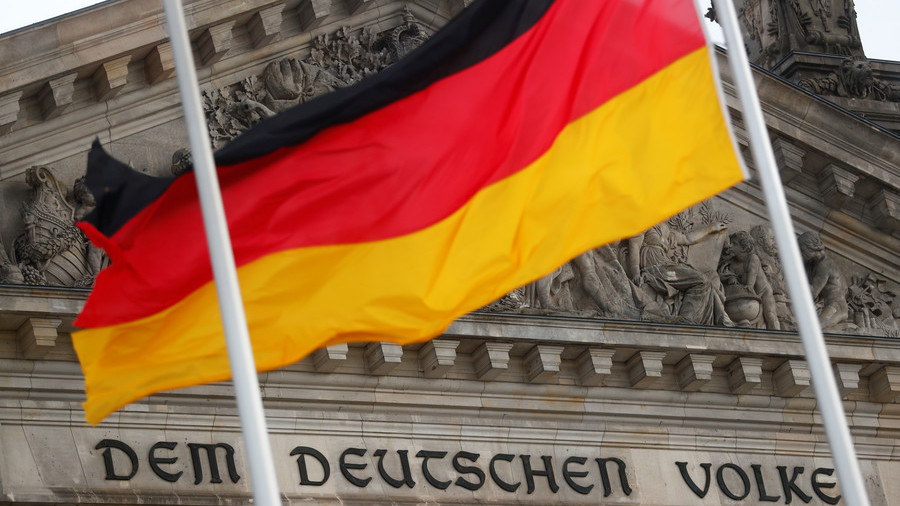
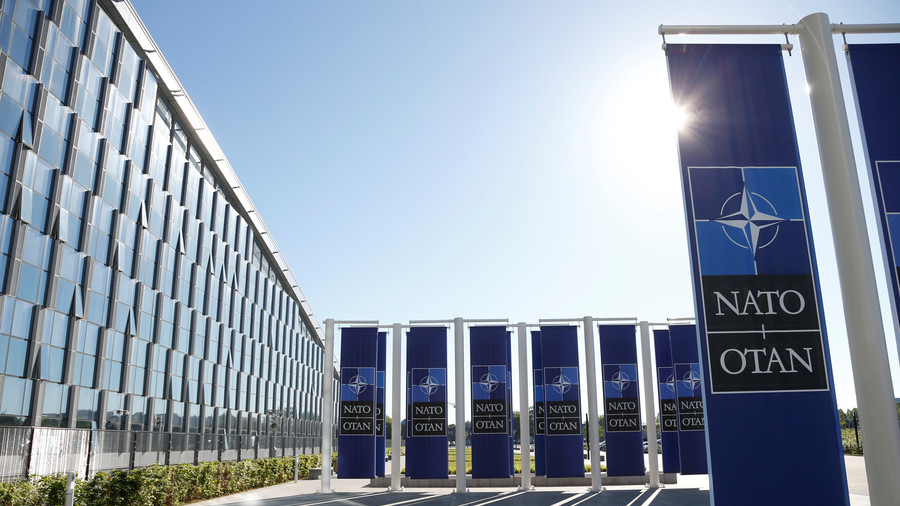
 ‘Make peace great again!’ Crowds take to Brussels streets to protest NATO, Trump (VIDEO, PHOTO)
‘Make peace great again!’ Crowds take to Brussels streets to protest NATO, Trump (VIDEO, PHOTO) 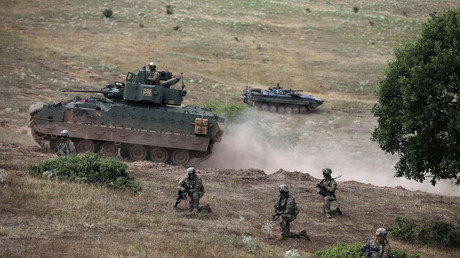 German officials join UK and US establishment worried how Trump-Putin summit will affect NATO
German officials join UK and US establishment worried how Trump-Putin summit will affect NATO 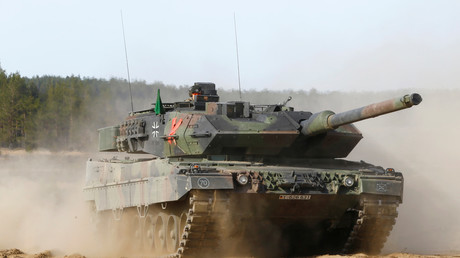 ‘You’re hell-bent on colliding with NATO’ – Farage slams EU defense project
‘You’re hell-bent on colliding with NATO’ – Farage slams EU defense project 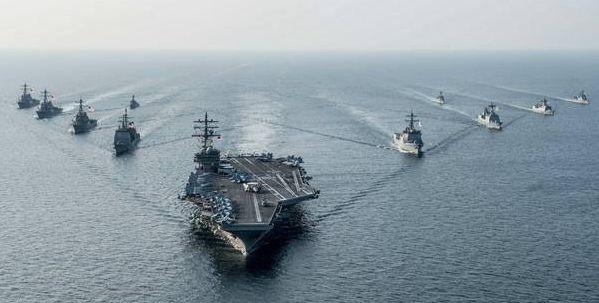


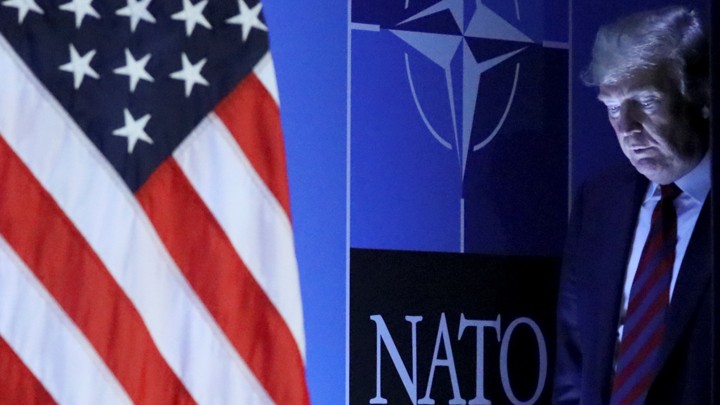

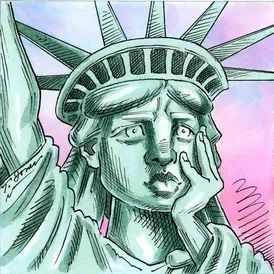
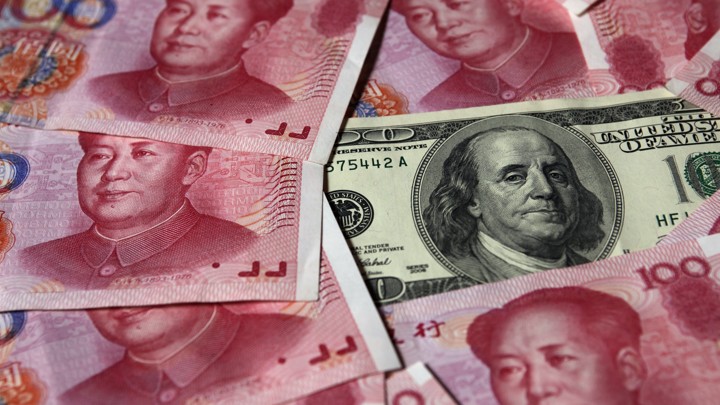




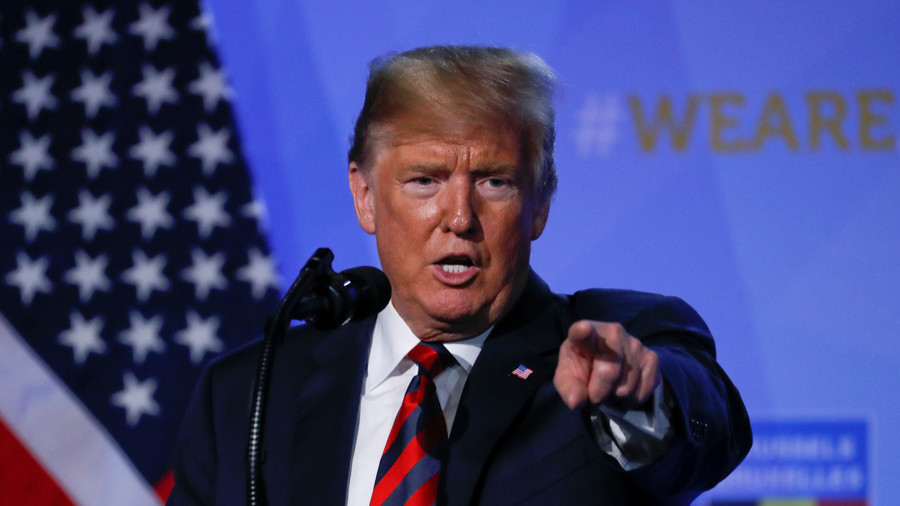
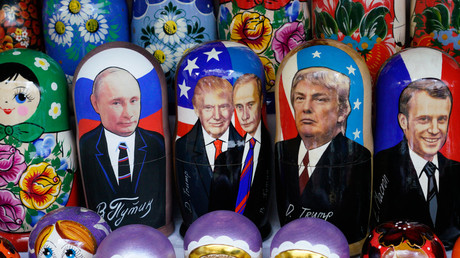 US-Russia ties have ‘never been worse’ thanks to US ‘foolishness and stupidity’ – Trump
US-Russia ties have ‘never been worse’ thanks to US ‘foolishness and stupidity’ – Trump